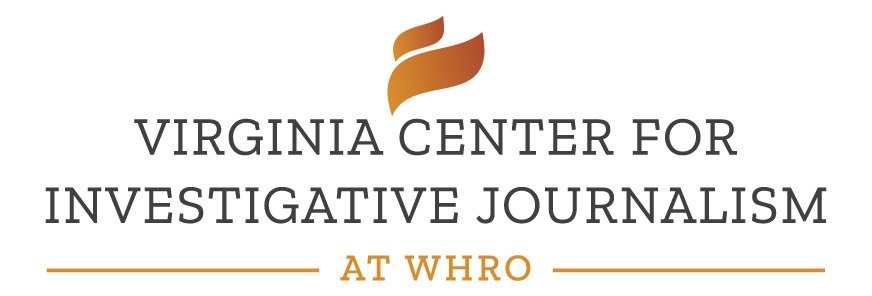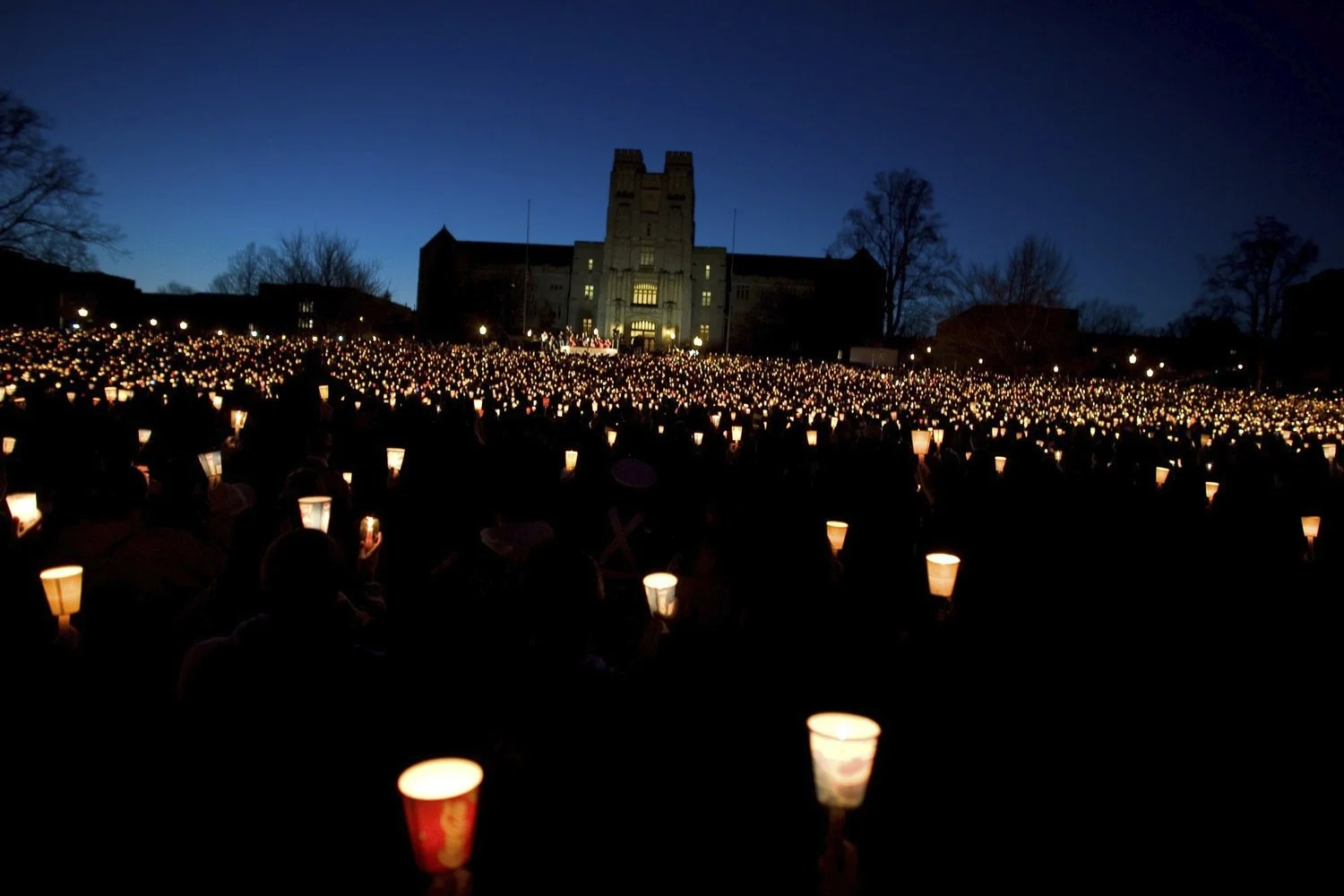Sixty-plus years ago, the white leaders of Newport News, Virginia, seized the core of a thriving Black community to build a college. The school has been gobbling up the remaining houses ever since.
Read moreRichmond voting site closures could make in-person early voting inaccessible to minority voters
The sign outside of the Richmond Registrar's Office, Richmond, Virginia, on Aug. 1, 2023. The city electoral board voted on July 25 to limit in-person early voting to this location in northern Richmond, near the city limit. Photo by Jimmy Cloutier
The Richmond Electoral Board’s decision last week to limit early voting locations could force voters in majority Black precincts to travel more than two hours by public transit to cast their ballots ahead of election day, an analysis by the Virginia Center for Investigative Journalism at WHRO has found.
Read moreAmid high-profile shootings, Virginia gun policy remains a stalemate
Students on the Virginia Tech campus in Blacksburg, VA, mourn the more than 30 people killed on campus during a candle light vigil on the campus. Burruss Hall is in the background. Photo taken April 17, 2007. Photo by Christopher Tyree/file for The Virginian-Pilot.
In the wake of the 2007 Virginia Tech massacre, elected leaders vowed to prioritize campus safety.
Then-Gov. Tim Kaine appointed a blue-ribbon panel and within a year signed more than 30 mental health, school security and gun purchase bills aimed at preventing future mass shootings. Several appeals for stricter gun policies, however, were voted down.
More than 15 years later, in the aftermath of another school shooting — this time at the University of Virginia, where three students were shot and killed in November — state lawmakers considered a range of gun policy proposals: a ban on new assault-style weapons, new punishments for those who fail to secure their guns, an expansion of the state’s “red flag” law and restrictions on possessing firearms in school buildings.
But just one major safety measure survived: a $300 tax credit for firearms owners to purchase gun safes. A second bill requiring public universities to more quickly and comprehensively respond to a potential threat passed the House and Senate but still awaits Gov. Glenn Youngkin’s signature.
Read moreWill recent mass shootings turn Virginia’s public safety debate?
Following the murder of three University of Virginia football players by a fellow student, UVA students hoist a banner over the Phi Kappa Psi fraternity in November. Photo by Christopher Tyree
Following the back-to-back mass shootings at the University of Virginia and a Chesapeake Walmart, Republicans and Democrats are touting proposals to help prevent future tragedies – again.
Virginia state Sen. Creigh Deeds, D-Bath, said he intends to file legislation to ban new assault weapons and launch a gun buy-back program.
Read moreCoronavirus Casualty: Mental Health Treatment
Austin Sweigart, an event planner for the LGBTQ+ community who uses they and them pronouns, says that they had trouble getting mental health counseling and medical treatment during the pandemic. They are not alone. Public and private mental health care providers in Virginia say they have been forced to change not only the ways they offer certain services to patients but also whether they offer them at all. Photographs by Christopher Tyree // VCIJ
Public and private mental health care providers in Virginia say they have been forced to change not only the ways they offer certain services to patients, but also whether they offer them at all. The virus has upended care across state facilities, which serve more than 200,000 Virginians every year
Read moreVirginia’s nuclear disaster plan is extensive, but key online resources 404
Color photograph of the Three Mile Island nuclear generating station, which suffered a partial meltdown in 1979. The reactors are in the smaller domes with rounded tops (the large smokestacks are just cooling towers).
A detailed web of PDFs released in response to a request for the Virginia Department of Emergency Management’s nuclear disaster response plans contains hundreds of pages of information about how the Commonwealth will handle a nuclear emergency, ranging from meltdown to dirty bomb to accidental weapon explosion.
Read more




